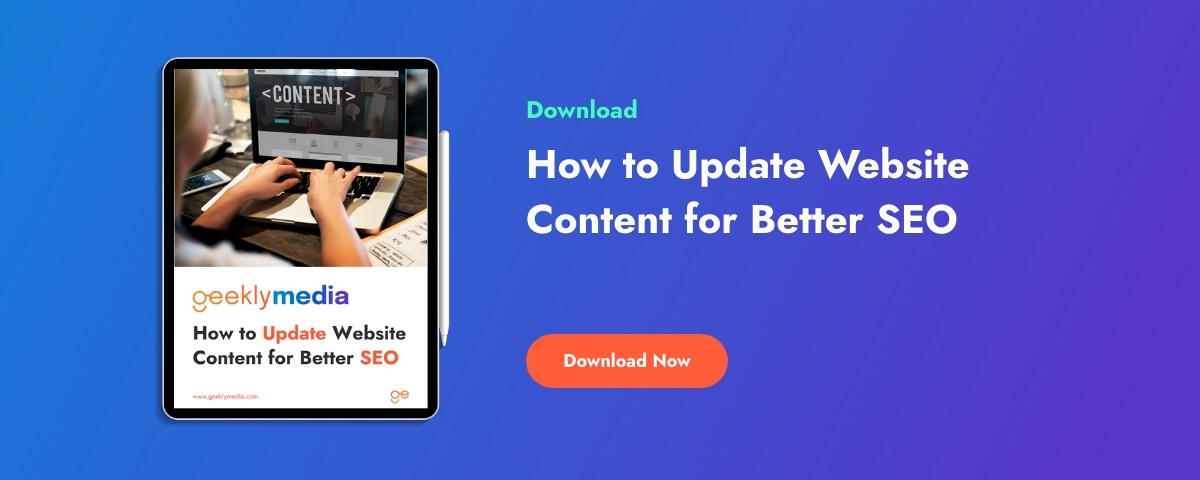
How Often Should You Update Your Website Content?
Listen to the article
How Often Should You Update Your Website Content?
Keeping your website content fresh and up-to-date is crucial for maintaining a successful online presence for your property management website. Regularly updating your old content (or "lengthening and strengthening" it) not only helps in improving search engine rankings but also enhances the user experience while driving more traffic to your site.
However, it can be challenging to know how often is "often enough" when updating existing website content. How often should you update your website content?
Delivering answers like that is what we're here for! In this blog, we share best practices for updating old content and why it's important for better property management marketing.
So, How Often Is Good Practice for Updating Old Content?
When updating old real estate blog content or your property management blog, finding the right balance is essential.
You don't want to update so infrequently that your content becomes outdated and irrelevant, nor do you want to update so frequently that it becomes overwhelming for your audience. to keep up with all of that new content.
In most cases, updating your content every nine months or annually should be frequent enough to review and apply relevant updates to boost traffic.
Can You Update Too Frequently?
Keep in mind that content that is "too new" or hasn't been published long enough may not benefit from a strategic update since Google needs some time to recognize new content, then crawl and rank it. It takes time for search engines to index and rank new content, so frequent updates may not give enough time for your changes to have a positive impact.
So publishing a blog today, then updating it in a month (or even in six months) could be a wasted effort. It's also unlikely you'll have anything worthwhile to justify an update that soon, like new information or statistics, new trends to mention, or new keywords.
While regular content updates are crucial, updating too frequently can have its drawbacks. Updating your content monthly, for example, may be excessive and could disrupt your readers' experience. It's better to focus on quality updates rather than overwhelming your audience with constant changes.
 How Should You Approach Content Updates?
How Should You Approach Content Updates?
When updating your website content, having a structured approach is key. Here are some steps to consider when planning your website content update process.
1. Catalog All of Your Content
Start by creating a comprehensive inventory of all your content, including blogs, pillar pages, web pages, email drips, and any other relevant material. This will help you get a clear picture of how much content you have and what needs to be updated.
2. Categorize Content Update Needs
Once your content is cataloged, categorize the update needs based on performance.
Identify top performers that continue to drive traffic and engagement, as well as underperformers that may need a revamp. Additionally, consider organizing your content from oldest to most recent to ensure all pieces receive attention.
3. Set a Schedule
Establish a content update schedule to go with your blog content calendar that aligns with your resources and priorities.
Determine how often you'll review and update your content based on the size and needs of your website. Remember to balance frequency with the time needed for updates to take effect.
4. Track Changes and Analyze Results
After publishing content updates, closely monitor the impact on your website traffic and engagement metrics. Keep track of when updates were made and compare the results before and after the changes. This data will provide insights into the effectiveness of your update strategy and help you make informed decisions moving forward.
"Updated" Content Is "New" Content to Google
The good news is that if a content updating process seems like a lot of work, you're doing your website a lot of good by implementing one! You're also reducing the volume of brand-new blogs or content you need to produce to keep bringing search engines back to your site.
Google and other search engines see "updated" or fresh content as "new" content. Refreshing content with new information, links, images, and keywords triggers Google to crawl the page again.
Additionally, republishing the content with updates is an excellent opportunity to promote it to your audiences again. After making updates, send the refreshed blog to your social platforms with new posts highlighting the content. You can also email it to your contacts as part of your email subscription list.
 Start Your Website Content Update Process With Geekly Media
Start Your Website Content Update Process With Geekly Media
Regularly updating your website content is vital for maintaining a competitive edge for property managers and housing industry professionals. By following a systematic approach to content updates and finding the right frequency, you can ensure your content remains fresh, relevant, and valuable to your audience.
If you're ready to build a successful content marketing strategy and apply a "Lengthen and Strengthen" approach to your content, Geekly Media is here to help. Speak to a Geek to learn how we can help you generate more traffic and leads through strategic content updates.
Apply our best insights to your website content updates! Download a free copy of "How to Update Website Content for Better SEO."




-1.png)